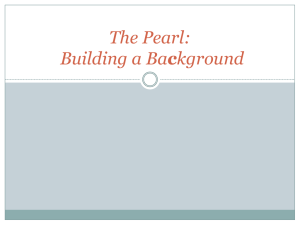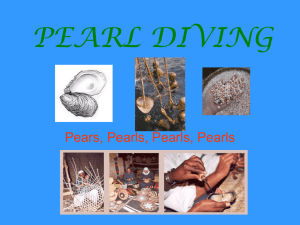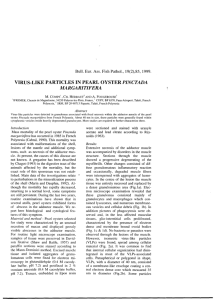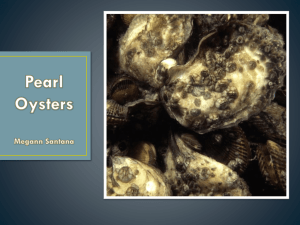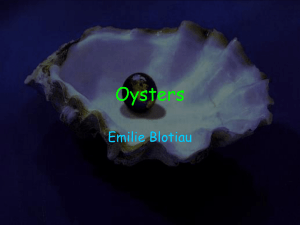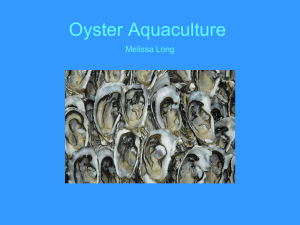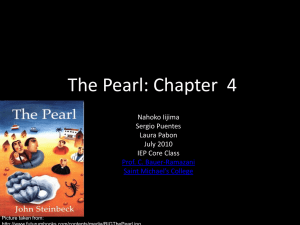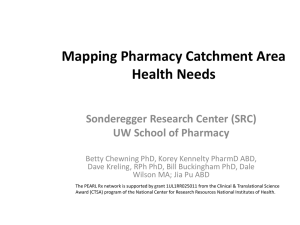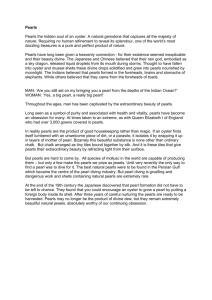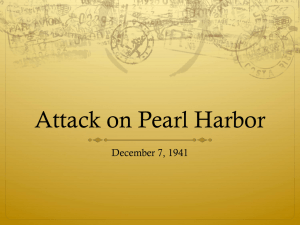Esraa Elsayed Abou Elmaaty - The Six International Conference of
advertisement
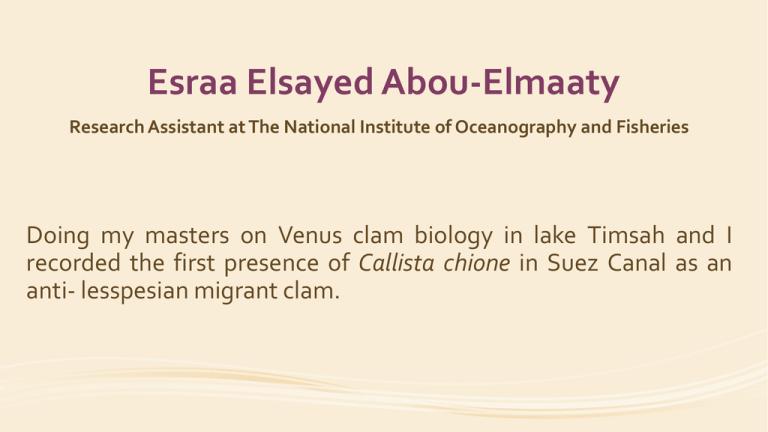
Esraa Elsayed Abou-Elmaaty Research Assistant at The National Institute of Oceanography and Fisheries Doing my masters on Venus clam biology in lake Timsah and I recorded the first presence of Callista chione in Suez Canal as an anti- lesspesian migrant clam. Biology and culture for endangered pearl oyster (black-pearl oyster) • Pinctada margaritifera (Black-Lip Pearl Oyster ), a saltwater pearl producing clam. • Although a number of species of pearl oysters have been identified, only a few have been found to produce pearls of good quality and commercial value, one of these is P. margaritifera . • They occur in several seas of the tropical belt and in the sub-tropical region. Pinctada margaritifera • The pearls from Pinctada Sp. is the highest quality out of all the pearl oysters. • In Egypt Pinctada sp. have been exposed to exploitation due several reasons as to the considerable value of the pearls and the nacre, or “mother of pearl”, of the shell and because of the animal’s sessile nature and tendency to occur in sufficient densities at shallow depths for relatively easy collection. • Another factor which may be the cause of limiting the distribution of P. margaritifera is the substrate availability. • As a result during the last decade, there is a sharp decrease in the density of the animals in the reefs (EEAA, 2007). • This decrease motivated the Egyptian Environmental Affairs Agency (EEAA) for suggesting the black-lip pearl oyster among other species, to be added to the list of the threatened species in the red data book published by the International Union for Conservation of Nature (IUCN). • Many studies recommended pearl oyster farming due to its endangered status. The aim of my proposal is to design a conservation plan by using different propagation techniques and develop a mari-culture technique that introduced to the off shore (Open Ocean Aquaculture ). • In Germany mariculture is existing in a very hight level. • Most mariculture organisms there, are produced in coastal areas, where space is scarce and user conflicts exist. • For extensive cultures, farming off the coast at offshore sites could be a solution to eliminate these problems and facilitate further expansion of environmentally sustainable aquaculture. I have Communicated with Prof. Karsten Reise from Alfred Wegener Institute for Polar and Marine Research and she told me that there are no pearl oysters at the coasts of Germany but there are introduced Pacific oysters all over the coast, Crassostrea gigas. Thank You For Listening
